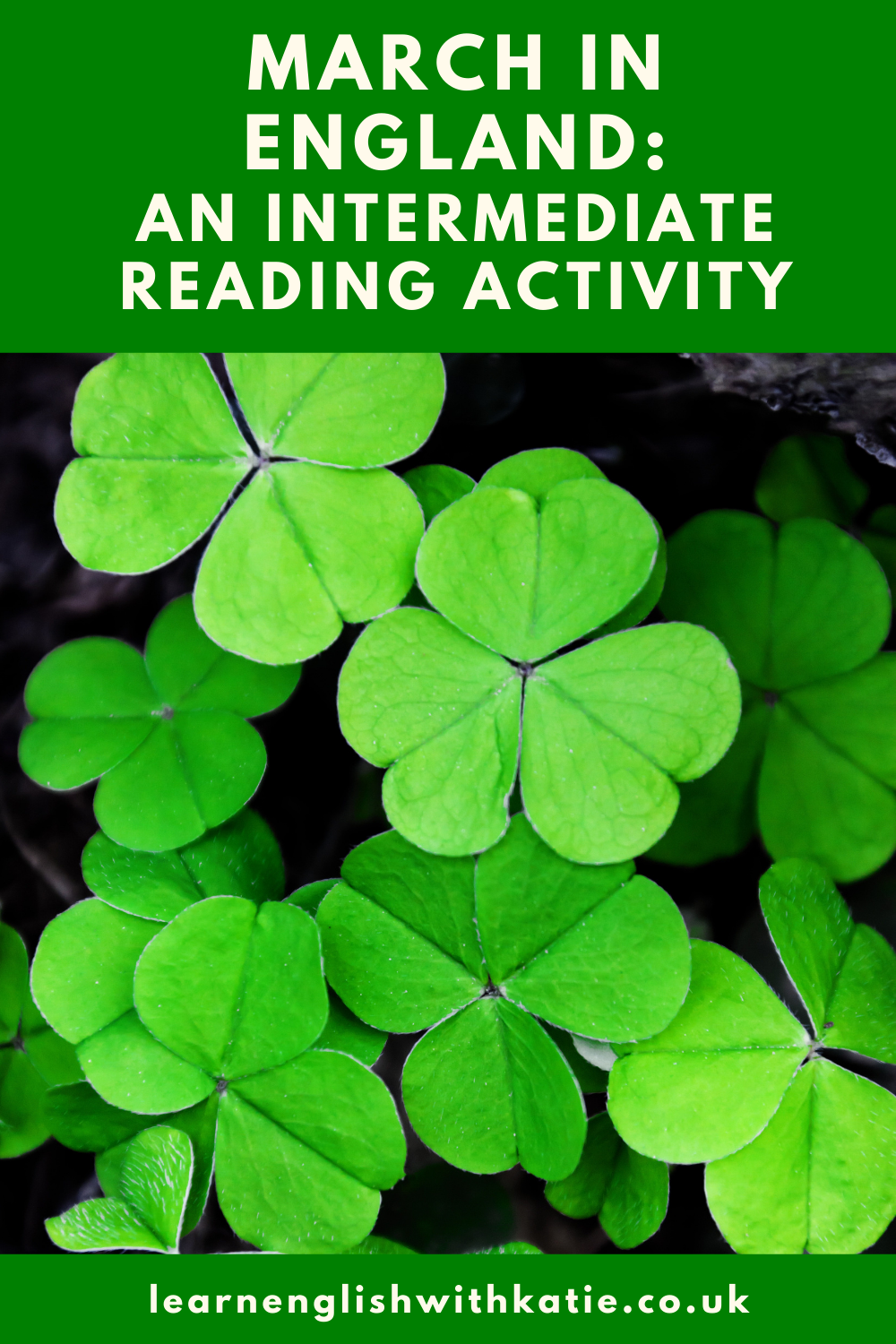|
March is named after Mars, the ancient Roman god of war. In the old Roman calendar, the year started with spring, a time of new life and new beginnings, and March was the first month of the year. January and February were added to the calendar about 2700 years ago, making March the third month. The winter is finally over and spring begins. Around the 21st of the month, night and day are the same length. This is called the Spring Equinox. At the end of the month, the clocks go forward one hour. This means we might lose an hour of sleep but then we have more daylight in the evenings. After the cold winter months, the weather warms up and things start growing again in the garden, especially crocuses and daffodils. Trees that lost their leaves in the winter start to turn green again and the first blossom can be seen. A favourite sight for people who live in the countryside is lambs playing in the fields. Some farms allow visitors, and children can even give milk to the lambs from a bottle. In the UK, Mother’s Day falls on a Sunday three weeks before Easter (and the date of Easter changes depending on the cycles of the moon). It’s almost always in March but it can be in early April. Mother’s Day is a day to celebrate mothers and motherhood. We give cards, flowers or other gifts to our mums and maybe to our grandmothers as well. This day is traditionally called Mothering Sunday but it is more commonly known as Mother’s Day nowadays, probably because of influence from America. Another special day for some people is Saint Patrick’s Day. Saint Patrick is believed to have brought Christianity to Ireland in the fifth century. This day is a national holiday in Ireland and Northern Ireland but not in England. However, in recent years, Saint Patrick’s Day celebrations are growing in popularity in England too. Some cities with a large Irish community might have a parade or parties with Irish music and dancing. In other places, some people might just use it as an excuse to go to the pub and drink Guinness, a type of beer made in Ireland. It’s a busy night for Irish-themed pubs, which can be found across the UK. The first Thursday in March is World Book Day in the UK. All children who are in full-time education get a special World Book Day voucher worth £1. Special books are published which cost only £1 and children can either exchange their voucher for one of these or they can get £1 off a full-priced book. Schools organise fun activities about books to encourage children to enjoy reading. Some schools invite children to go to school dressed up as a character from their favourite book. Easter sometimes falls in March but more often in April. You can read about Easter here. If you would like to learn more about English life, try my e-book, "A Year in England". It contains a text like this for each month, plus a vocabulary list and reading comprehension questions. There are also bonus sections about Christmas and Easter. Click the image below or visit my shop.
0 Comments
Your comment will be posted after it is approved.
Leave a Reply. |
About the blogFollow the blog for mini lessons and tips on how to improve your English. Categories
All
Archives
July 2024
|


 RSS Feed
RSS Feed
